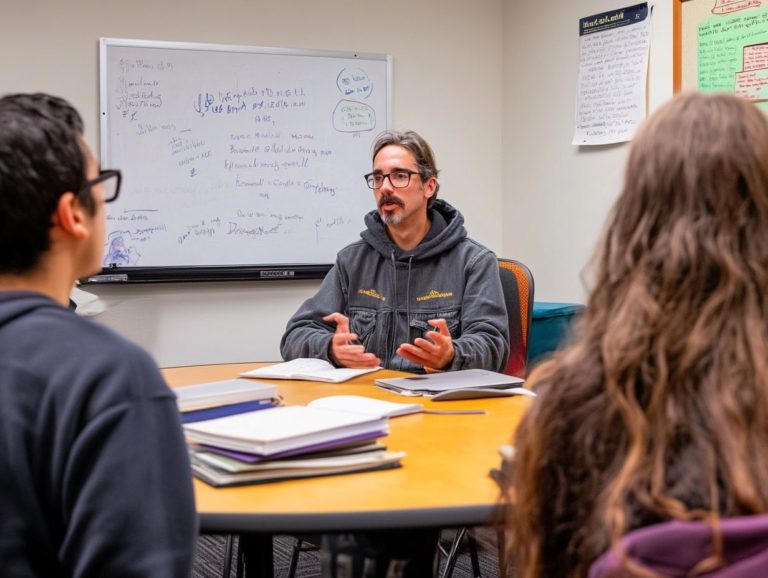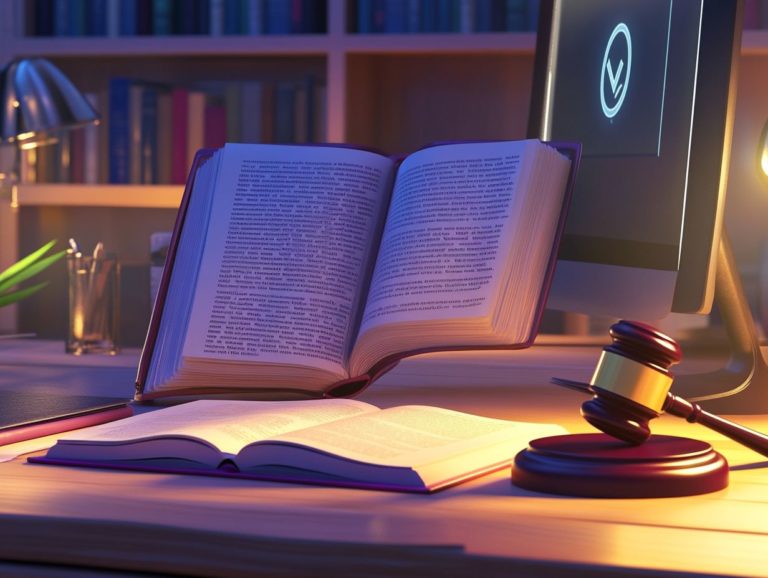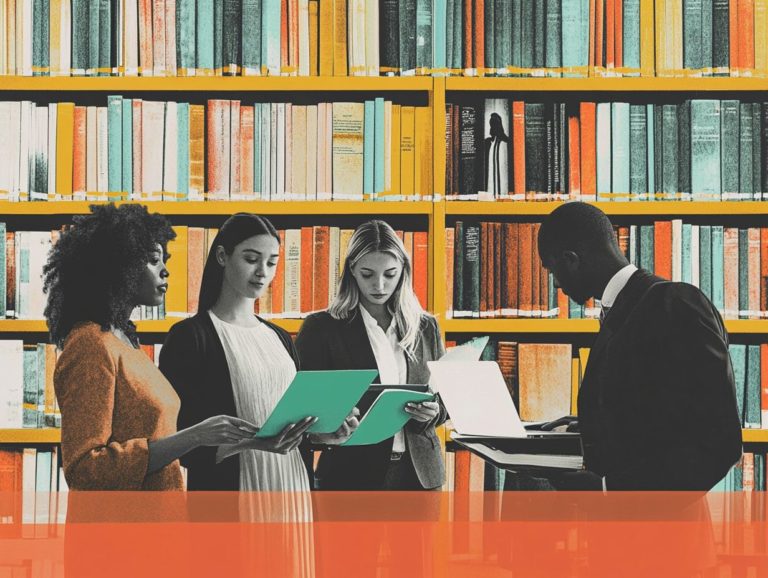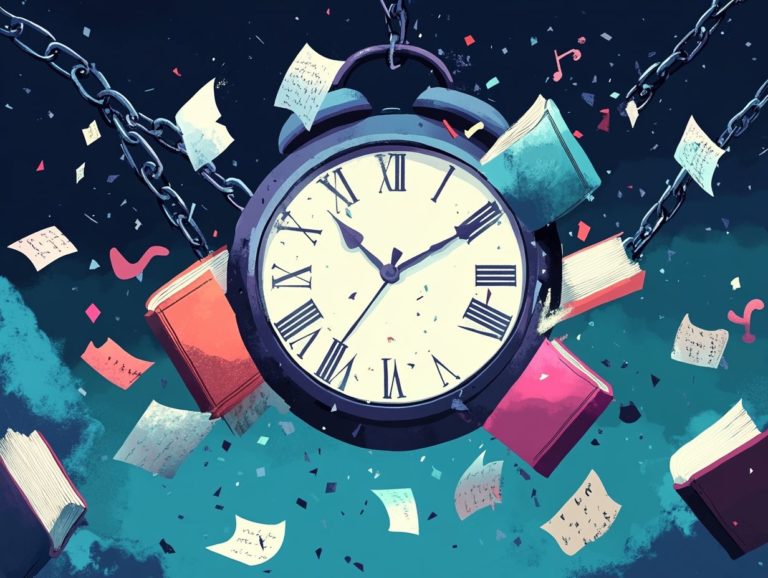The Relationship Between Copyright and Digital Rights
In today s fast-paced digital world, you must understand copyright and digital rights to protect your creations. As technology evolves, the definitions and implications of these terms are continuously changing.
This article explores the history of copyright, examining current laws and regulations that govern digital content. It also addresses the challenges and controversies in this intricate field, providing effective strategies to safeguard your rights.
Immerse yourself in this complex world and equip yourself with the knowledge necessary to navigate it confidently.
Contents
- Key Takeaways:
- Understanding Copyright and Digital Rights
- History of Copyright and Digital Rights
- Current State of Copyright and Digital Rights
- Challenges and Controversies
- Protecting Copyright and Digital Rights
- Your Top Questions Answered About Copyright and Digital Rights!
- What is the relationship between copyright and digital rights?
- How do digital rights affect copyright laws?
- Can digital rights be protected under copyright law?
- What are some challenges in the relationship between copyright and digital rights?
- How are digital rights violations addressed?
- How can individuals protect their digital rights?
Key Takeaways:
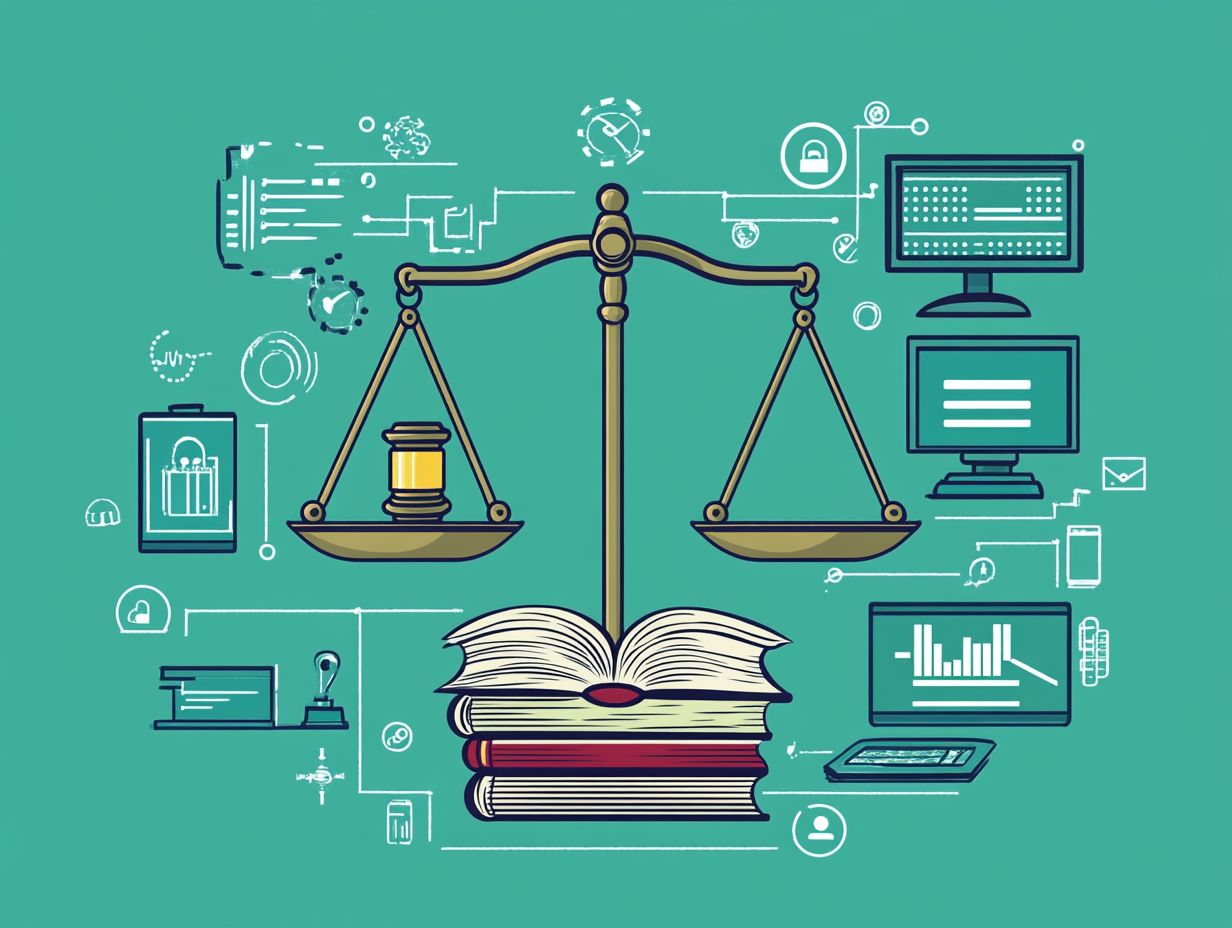
- Copyright and digital rights are two distinct concepts aimed at protecting ownership and control of digital content.
- The history of copyright and digital rights has evolved, influenced by technological advancements and legal changes.
- Protecting these rights can be challenging due to ongoing debates about fair use and online piracy. Effective strategies are essential in the digital age.
Understanding Copyright and Digital Rights
As a content creator or copyright holder, understanding copyright and digital rights is essential in today s dynamic digital media landscape.
Copyright law dictates how creative works can be used, protecting against infringement and ensuring you maintain control over your ideas and creations.
This framework is crucial for navigating user-generated content on social media and streaming platforms, where debates about fair use and legal liability often arise.
Definitions and Differences
Copyright grants creators legal rights to their original works, while digital rights encompass broader protections relevant in the online realm, including user-generated content.
Copyright safeguards the specific expression of an idea, giving authors, artists, and other creators exclusive control over reproduction and distribution. In contrast, digital rights cover the rights you hold regarding your data and privacy when using digital platforms.
For content creators, copyright infringement poses significant risks, including potential legal disputes and financial consequences. Understanding and protecting your rights has never been more vital in a landscape where sharing and reposting are common.
By managing their rights proactively, creators can navigate online challenges and protect their creative contributions effectively.
History of Copyright and Digital Rights
The history of copyright and digital rights is a complex journey that has undergone significant evolution, particularly with the introduction of the Digital Millennium Copyright Act (DMCA) in the late 1990s. This pivotal legislation aimed to address challenges posed by the internet and digital media, as well as its relationship with fair trade.
Originally crafted to protect creative works in traditional formats, copyright law now adapts to the realities of content distribution across social media and streaming services.
In this landscape, enforcing copyright against infringements has become increasingly challenging, yet it remains more crucial than ever.
Take control of your rights today! Equip yourself with knowledge and strategies to protect your creations in this ever-changing digital landscape.
Evolution and Development
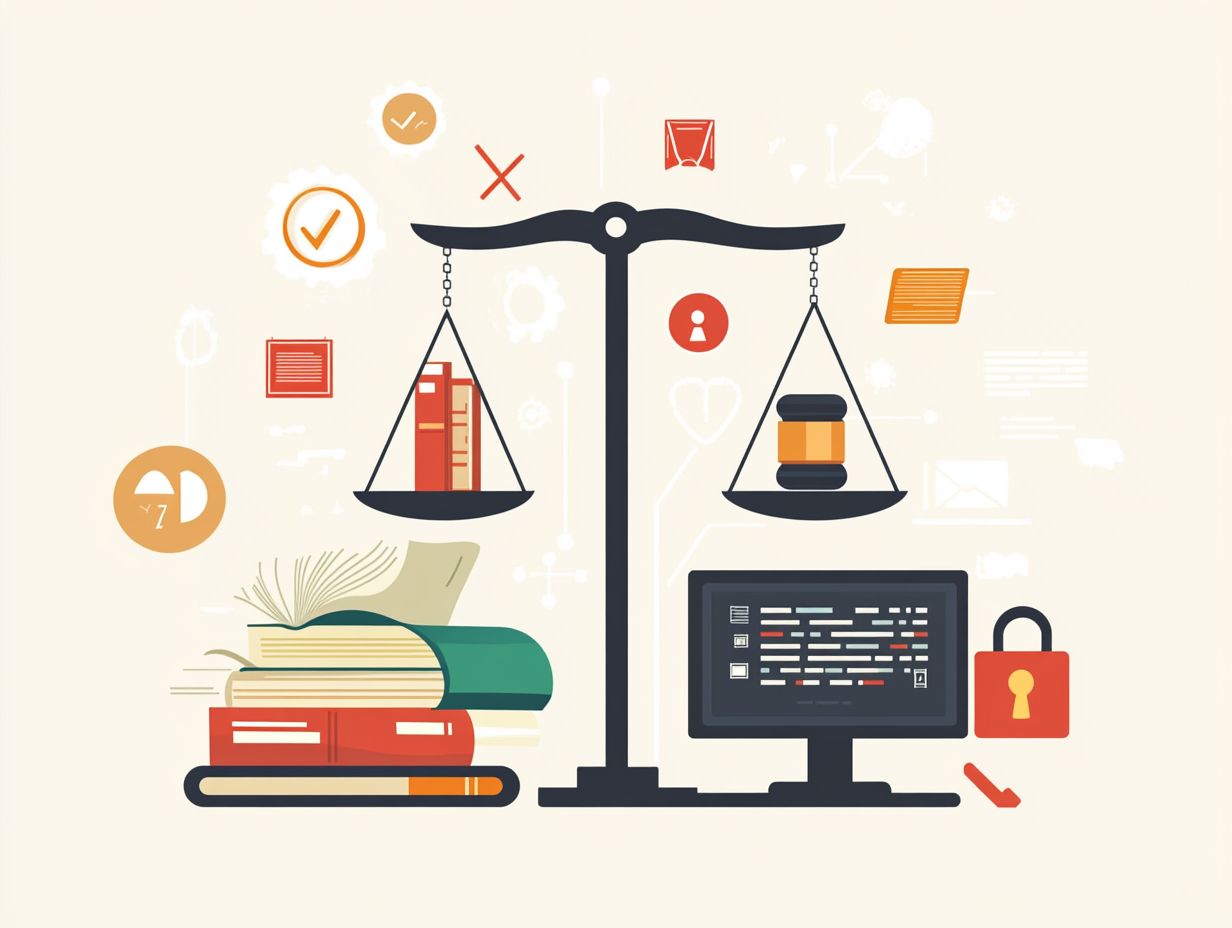
The evolution and development of copyright have been significantly influenced by shifting technologies. This change reflects the current market dynamics and the growing importance of user-generated content.
As innovations have emerged, they ve changed how we produce and share our work. They have also presented substantial challenges to traditional copyright frameworks. The rise of the internet and digital platforms has called for new licensing agreements that cater to both creators and distributors, often blurring the lines of ownership.
Landmark cases in copyright history have set precedents that shape the rights of individuals and organizations alike. This legal evolution affects how we practice copyright today while striving to balance the protection of original ideas with the encouragement of creativity and collaboration.
Current State of Copyright and Digital Rights
The current landscape of copyright and digital rights is marked by ongoing discussions about regulations. These regulations seek to strike a balance between the interests of copyright holders and the vast world of user-generated content across platforms like social media and streaming services.
As you navigate this swiftly evolving media industry, propelled by technological advancements, you ll find that issues related to platform liability and the enforcement of copyright laws have gained significant importance.
These challenges affect both creators and users alike. Staying informed and engaged in the conversation is essential.
Laws and Regulations
Laws and regulations related to copyright are primarily governed by copyright law. This includes frameworks like the Digital Millennium Copyright Act (DMCA), which protects your rights as a creator online.
The DMCA outlines the enforcement procedures and penalties for copyright infringement. It serves as a crucial shield for content creators and copyright holders in our ever-evolving digital landscape.
By establishing clear guidelines for the distribution and use of copyrighted materials online, the DMCA balances safeguarding creators’ rights and ensuring public access to information.
As a content creator, understanding copyright risks is crucial to protect your work! The potential consequences of copyright infringement can range from hefty fines to serious legal repercussions.
As technology advances, contemporary practices surrounding copyright continue to evolve. This progression sparks important discussions about fair use, licensing agreements, and the unique challenges posed by user-generated content across various platforms. Staying informed in this dynamic environment is vital for navigating the complexities of copyright in your creative endeavors.
Challenges and Controversies
Challenges and controversies surrounding copyright and digital rights frequently emerge from the delicate balance between enforcement and user liberties. This is especially true for user-generated content on digital platforms.
Content moderation policies can lead to dissatisfaction when users perceive their creative works as unfairly targeted for copyright infringement. This situation raises crucial questions about maintaining harmony between copyright protection and the freedom of expression.
Issues and Debates
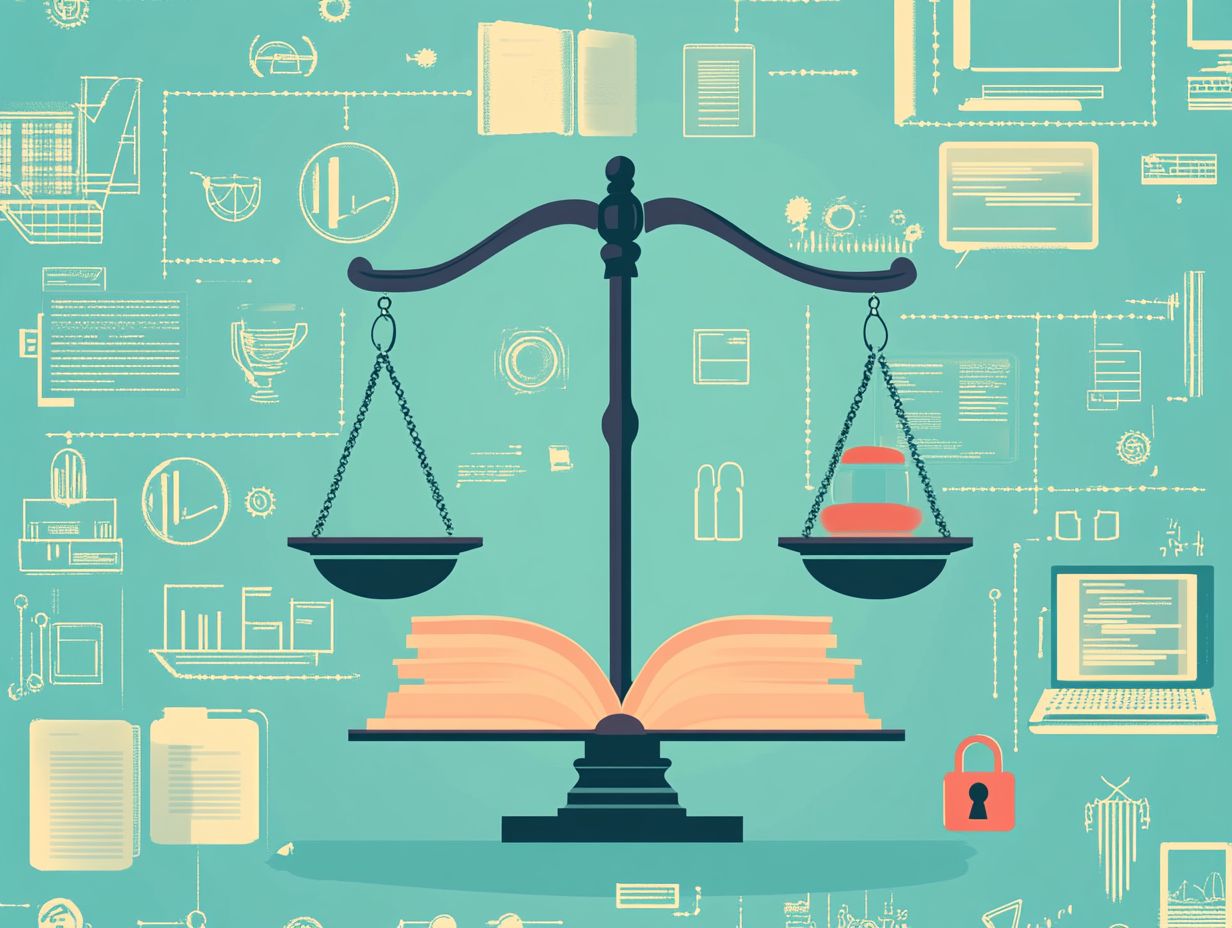
Issues and debates surrounding copyright largely center on copyright infringement and fair use. This is particularly relevant in light of the increasing automation in content moderation on digital platforms.
As these platforms become more dependent on algorithms to filter and manage user-generated content, the intricacies of defining fair use become ever more pronounced.
You may find yourself navigating a complex landscape where your original creations can be scrutinized or even removed, often without the necessary context or understanding. This raises important questions about your rights to build upon existing works while also considering the interests of copyright holders.
The automation of content moderation can sometimes lead to overreach, disproportionately affecting creators who may lack the resources to challenge these decisions.
Therefore, the intersection of copyright law and automated moderation presents both opportunities and challenges that are crucial to navigate in today s digital landscape. Stay informed and join the conversation about copyright challenges today!
Protecting Copyright and Digital Rights
Protecting copyright and digital rights requires a comprehensive approach, employing a range of methods to shield your creative works from infringement. It’s about striking a balance that safeguards your creations while fostering content diversity and accessibility for all.
Methods and Strategies
The methods for protecting copyright and digital rights have evolved significantly. Technology-neutral approaches ensure creative access while enabling effective enforcement mechanisms.
As the digital landscape shifts, content creators increasingly turn to versatile solutions. These strategies include clear licensing agreements and open access initiatives. They also involve standardized metadata, each designed to simplify rights navigation for creators and users alike.
Join community-driven platforms to unleash your creativity while respecting copyright! These approaches safeguard your intellectual property and promote innovation and accessibility in the marketplace.
Your Top Questions Answered About Copyright and Digital Rights!
What is the relationship between copyright and digital rights?
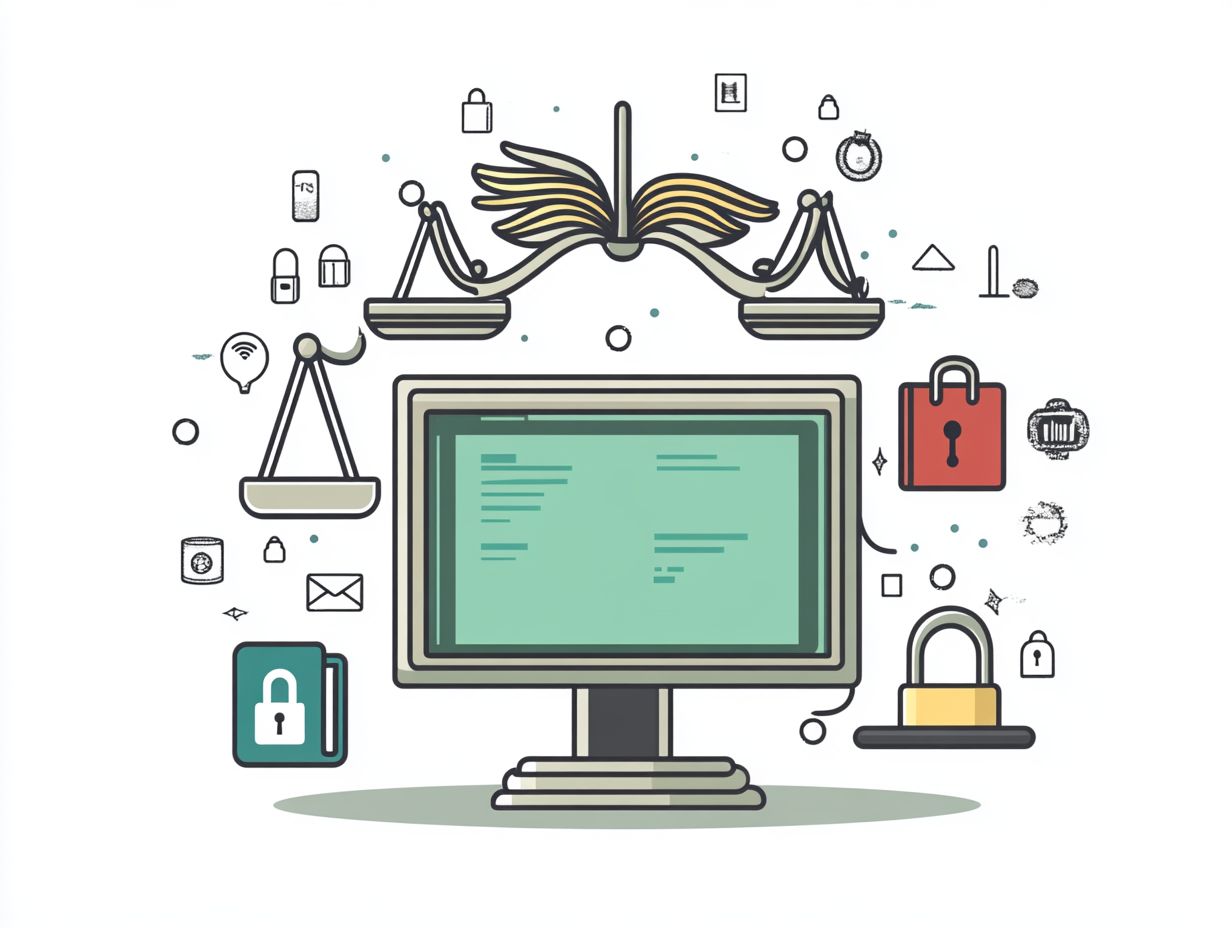
The relationship between copyright and digital rights is complex. Copyright is a legal protection granting exclusive rights to creators, while digital rights focus on the use and ownership of digital content.
Both deal with ownership and distribution of creative works, but digital rights specifically concern the impact of technology on these rights, particularly in understanding the relationship between patents and copyrights.
How do digital rights affect copyright laws?
Digital rights have greatly impacted copyright laws by introducing new challenges. With the rise of digital content and the internet, infringing upon copyright has become easier.
As a result, copyright laws have had to adapt to protect digital content and address issues like piracy and fair use.
Can digital rights be protected under copyright law?
Yes, digital rights can be protected under copyright law. Many copyright laws have been amended to include provisions for digital content.
Creators can use tools to control how digital content is used, such as adding watermarks or implementing access controls.
What are some challenges in the relationship between copyright and digital rights?
One major challenge is finding a balance between protecting creators’ rights and allowing fair use of digital content. The internet’s global nature complicates enforcement across different jurisdictions.
Advancements in technology often outpace the development of laws, creating new challenges for copyright and digital rights.
How are digital rights violations addressed?
Digital rights violations can be addressed through legal channels, such as filing for copyright infringement. Technology companies also play a role by implementing measures to prevent copyright infringement.
In some cases, organizations and governments collaborate to establish international agreements to protect digital rights.
How can individuals protect their digital rights?
Individuals can protect their digital rights by being aware of copyright laws and respecting others’ intellectual property. This includes obtaining proper permission and licensing for using digital content.
Creators should consider using digital watermarking or other techniques to protect their work from unauthorized use. Stay informed and advocate for stronger laws to help protect your digital rights!
Stay informed! Sign up for updates on digital rights and how to protect your creative works!

